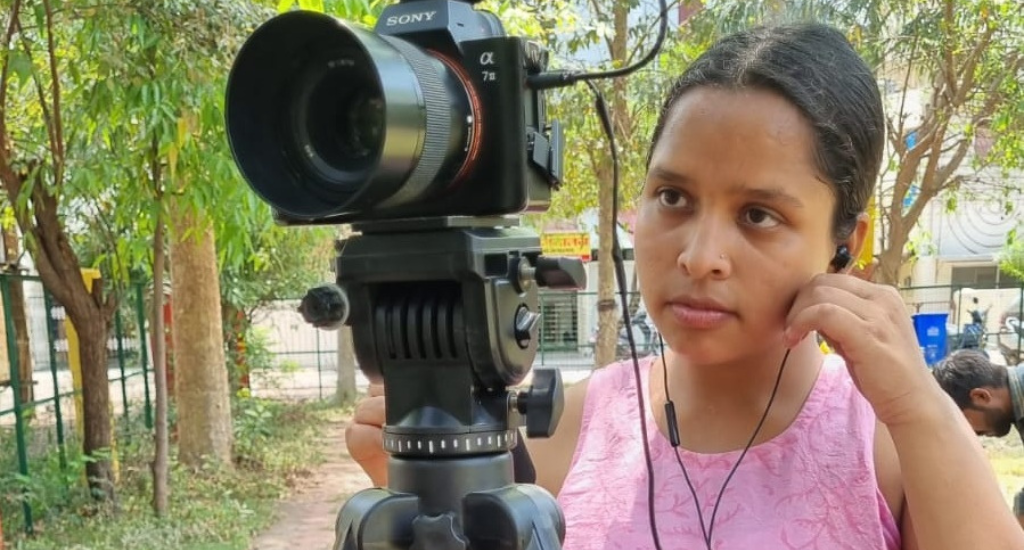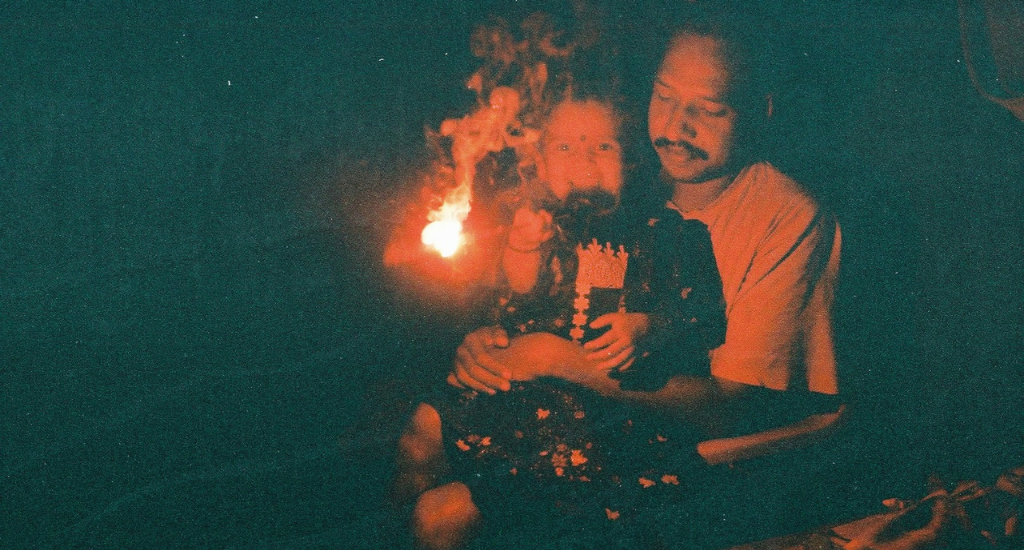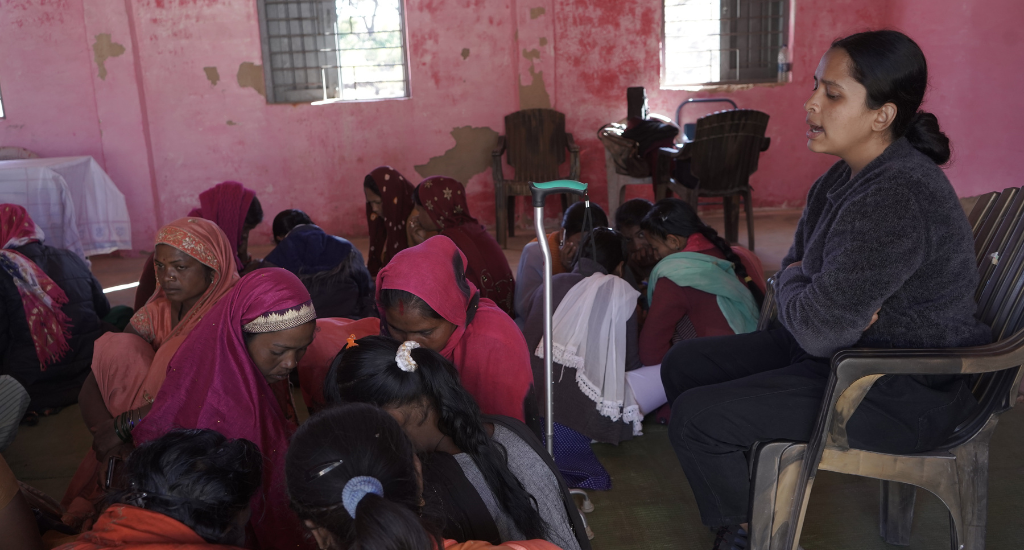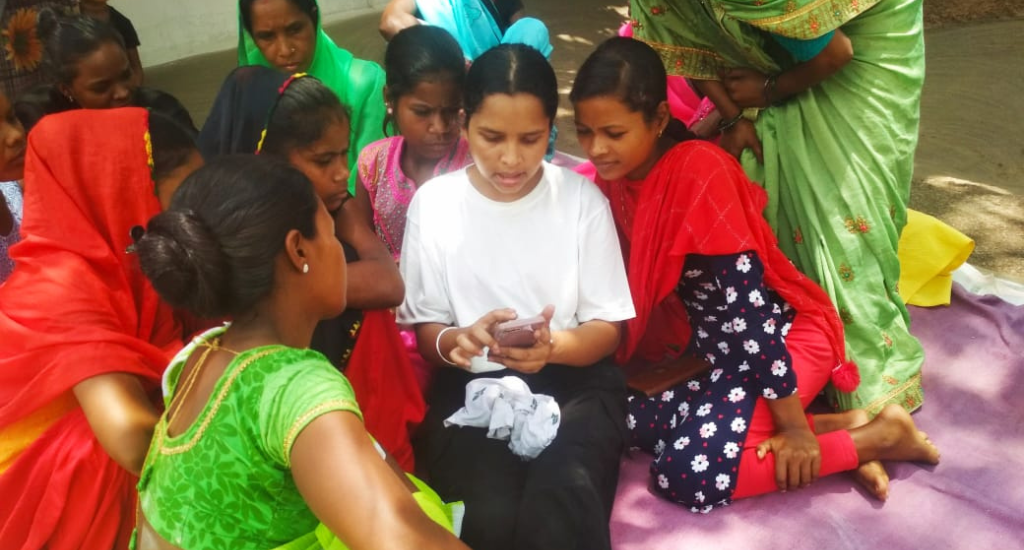
MP village youth aims for Hollywood spotlight
Shibali Biswas, a 23-year-old filmmaker from rural Madhya Pradesh, defies the odds to showcase her vibrant tribal culture globally.

Shibali Biswas, a 23-year-old filmmaker from rural Madhya Pradesh, defies the odds to showcase her vibrant tribal culture globally.
The world of cinema, the illusion factory awash in spandexed superheroes, churns out some unexpected reality off and on. And more often than not, this reality springs from unusual quarters.
Like “Frames”, a 17-minute college diploma film by a fringe outlier Shibali Biswas who has gone beyond predictable plotlines that dominate her native Sijhoura, a village stuck in time in Mandla district of Madhya Pradesh.
Shibali Biswas, the 23-year-old aspiring independent filmmaker, has brought a shock of freshness with “Frames”, a reflection on her idol and photographer Vicky Roy’s life. Her short film is also a testament to her determination to overcome various odds and chase her dream of making it big in the movie industry, with Hollywood firmly in her sights.
The debut film was screened at her college and drew appreciation. It is now on the verge of entering the festival circuit. What makes it even more captivating is her backstory, which she recounted frame by frame.

Born to an activist father and a mother from the Gond tribe, her fascination with the magic of cinema ignited at a young age, thanks to her father’s small DVD parlour. He would screen Hindi-dubbed versions of cinematic gems like “Jurassic Park” and “Narnia” for the villagers.
“My father worked with particularly vulnerable tribal groups (PVTGs). He has been working with the Bharia tribe the past 17 years. From a young age I travelled a lot, and saw diverse tribal cultures by meeting Baiga, Bharia, Sahariya, Gond, and other communities,” Shibali said.
This early exposure fuelled Shibali Biswas’ passion for photography, driven by the desire to capture the vibrant landscapes and cultures she encountered.
Also Read: Tribal filmmakers make high content on low budget
“My mother is a Gond. Their festivals, feasts, stories, mythologies, music, agriculture methods and folk art can be subjects of movies. I was privileged to know not just one but numerous tribal cultures,” she said.
Shibali’s journey took a significant turn when she secured a spot at Navodaya School, part of the government’s initiative to provide marginalised communities with better educational facilities. Later, she moved to Jabalpur to pursue a BCom degree, setting the stage for her future endeavours.
Her entry into the world of visual media began at Makhanlal Chaturvedi National University of Journalism and Communication in Bhopal, where the aesthetic beauty of the city’s old quarters merged with glimpses of people’s lives, enriching her perspective through the lens.

“I fell in love with the camera wizardry of Santosh Sivan (“Roja” et al) and Hoyte van Hoytema, cinematographer of Christopher Nolan’s films (“Oppenheimer”, “Dunkirk”). Rachel Morrison, a director of photography who shot “Black Panther”, became an inspiration too,” she said.
Learning the art of filmmaking, she looked up to directors like Imtiaz Ali, Vishal Bharadwaj, Anurag Kashyap, and Sanjay Leela Bhansali. Dreams of creating a film akin to Alia Bhatt’s “Highway” began to take shape.
However, Shibali’s ambitions reached far beyond Bollywood. She found herself drawn to the cinematic worlds crafted by giants like James Cameron and Zack Snyder.
Also Read: We need parallel cinema now more than ever: Muzaffar Ali
In college, the pressure to become economically independent loomed large. “I had to develop a portfolio. One of my first attempts at cinema was a short documentary titled ‘Adikhady’, which centred on Bharia tribe women receiving millet recipe training in Patalkot,” she said.
A fellowship in environmental conservation by Keystone Foundation for 11 months granted her the opportunity to explore her passion. “I was lucky. It empowered me to reach distant areas like tribal hamlet of Patalkot and Chhattisgarh’s Jashpur to work with PVTG’s like Pahadi Korba living in picturesque Bagicha. We would conduct workshops for women and children. I taught them the basics of photography, video recording and editing. Being a new experience, it turned into shared joy,” Shibali said.

However, a tragic accident halted her progress for almost ten months, a challenging period that affected her films, fellowship, and studies.
The turning point in her life arrived when she discovered the inspiring story of Vicky Roy, an Indian photographer who had risen from the slums to achieve international recognition. “Vicky is my true inspiration. His photographs capture stark realities but infuse a sense of hope,” Shibali said.
The world of filmmaking is often characterised by a shared dependency on arrangements and equipment borrowed from others, a common experience for beginners in the field. Shibali said she delved into filmmaking with a benevolent colleague’s Sony A7iii camera.
“I don’t own any of the equipment. We all are dependent on ‘jugaad’ (arrangement) system,” she said.
However, to meet the expenses of editing, music, and post-production, Shibali drew from her savings and spent Rs 50,000, highlighting the challenges independent filmmakers face. It took a fortnight from concept to script finalisation.
Also Read: Madhya Pradesh activist gifts home for tribal museum

“I had to pay the actors. I restricted to a formalist approach by using 35mm, 50mm and 85mm lens. For moving shots we had to rent out a gimbal at Rs 500 per day,” said Shibali Biswas.
She has also ventured into documentary filmmaking with a piece on Lahari Bai, known as the “Millet Woman”, which is yet to be edited.
Her latest adventure is the Green Hub Filmmaking Fellowship, where she and 24 others are immersed in a comprehensive training programme. “It would be challenging to make three to four documentaries on wildlife and tribal culture over the course of 10 months,” she said.
Shibali’s determination remains unwavering as she sets her sights on Hollywood, aspiring to share her vibrant cultural heritage with a global audience.
The lead image at the top is a still of Shibali from when she was shooting her film ‘Frames’ in Makhanlal University (Photo by Pranay Tripathi)
Pranay Tripathi, an Indore-based upcoming filmmaker and a Rural Media Fellow 2022 at Youth Hub, Village Square.